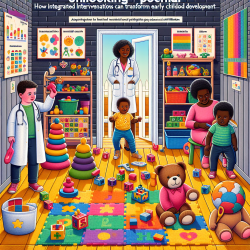Post-secondary students face numerous mental health challenges, with high rates of depression, anxiety, and stress. A recent study titled Mental health challenges, treatment experiences, and care needs of post-secondary students: a cross-sectional mixed-methods study sheds light on these issues and offers insights that practitioners can use to improve their skills and better support this vulnerable population.
The study highlights several key findings:
- Over a third of respondents reported a formal mental health diagnosis, with depression and generalized anxiety disorder being the most common.
- Students perceived financial barriers, long wait times, and insufficient resources as significant obstacles to accessing mental health care.
- Many students believed their institutions needed to increase awareness and resources related to mental health.
Here are actionable steps practitioners can take based on the study's findings:
1. Enhance Mental Health Education
Integrate mental health education into the curriculum to provide students with coping strategies and tools. Educating students early on about mental health can help them manage stress and seek help when needed.
2. Improve Accessibility of Services
Address barriers such as financial constraints and long wait times by offering more flexible and affordable options. Online therapy services can be a cost-effective and accessible alternative to in-person sessions.
3. Foster a Supportive Environment
Create a campus culture that prioritizes mental health. Encourage faculty and staff to promote available resources and support services. This can help reduce stigma and make students feel more comfortable seeking help.
4. Utilize Online Therapy Platforms
Given the uncertainty about the helpfulness and accessibility of different treatment forms, promoting online therapy with therapist involvement can be a promising solution. This format combines the convenience of online access with the personalized support of a therapist.
Practitioners should also consider conducting further research to stay updated on the evolving needs of post-secondary students. This ongoing effort will ensure that the support provided is both relevant and effective.
To read the original research paper, please follow this link: Mental health challenges, treatment experiences, and care needs of post-secondary students: a cross-sectional mixed-methods study.










